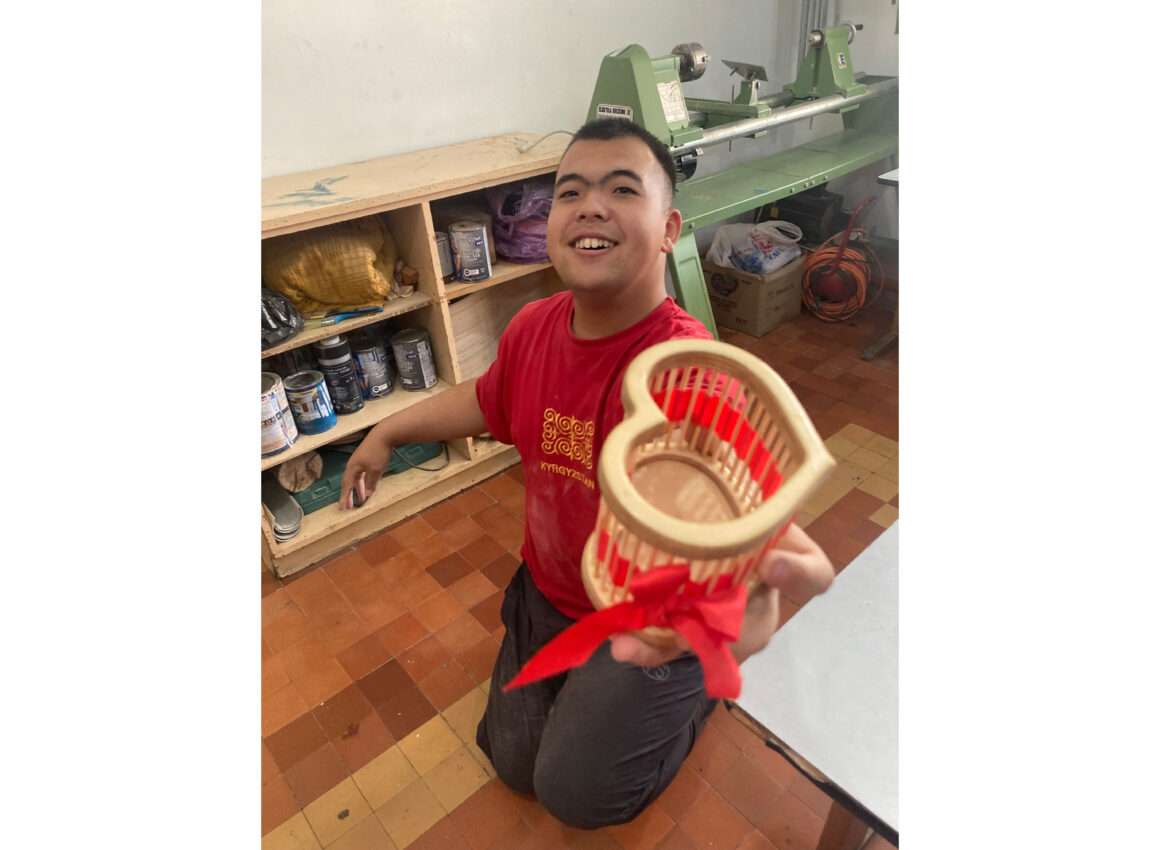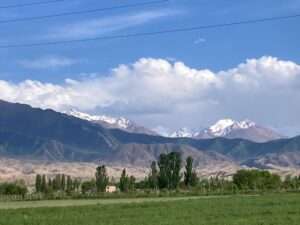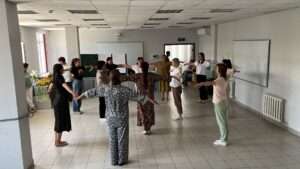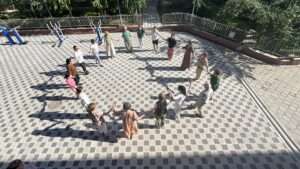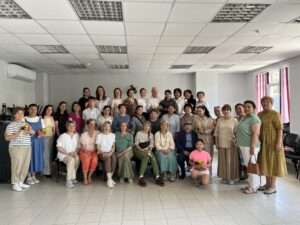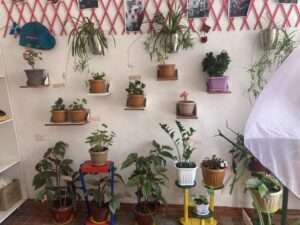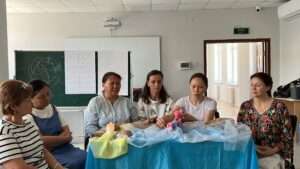Impressions from Kyrgyzstan
from the “Central Asian Waldorf Seminar” and the Community Umut-Nadjeschda
The land of the eternal sun, the yurts and the snow-covered peaks of the foothills of the Himalayas – magnificent – plus warm hospitality with interested, curious people, delicious food, wild horses and ibex in the mountains.
This special mix makes it clear why Karla-Maria Schälike and her husband Igor felt so at home in Bishkek 35 years ago that they began a lasting impulse in working with children in need of assistance: Umut-Nadjeschda!
Sonja Zausch from the leadership team went on a two-week trip to Kyrgyzstan in June 2024.
It began with a school for children with high support needs, followed by a curative kindergarten, a residential group for the children, an inclusive kindergarten … and when the first pupils had finished school, a small area with a workshop and day structure for the adults (some are orphans) began and this was naturally followed by a residential group … and a multi-purpose hall was created in an old cinema, where theater is performed regularly.
All of these small, fine places, which now have 50 employees, are spread across the capital – always in places where buildings or land could be bought, where a playground and now a residential building could be built, a place for the therapy horse could be found and horticulture could be practiced with the pupils.
I got to know Umut-Nadjeschda this early summer as a place that lives in resonance with the local conditions and the people who come there.
After 35 years of development, funding from the Kyrgyz system is still not secure and very low, so the network of supporters built up by Karla-Maria must continue to be maintained by the next generation.
Last August, the founder passed away and unfortunately the handover to the younger colleagues could not take place in full. This means that the two managers appointed in summer 2020, Inga Schälike and Aischa Nogoibaeva, are faced with many new tasks and questions.
- How can the future be secured financially when the economic opportunities for the countries and people providing support are also becoming more precarious?
- How can the active lecture work of employees in Germany, which has been a major source of donations, continue?
- How can the seminar, which was able to convey the Waldorf educational and curative qualities for the employees, be continued? This was also achieved with a great deal of commitment from now older colleagues from Germany. How can younger people be recruited as teachers?
- How can the increasingly important task of social therapy be addressed?
- How can younger colleagues and more men be inspired to work at Umut-Nadjeschda?
These are many questions and challenges that we as an international network should support and would like to contribute to in a very practical way.
Please contact Sonja Zausch if you have any suggestions.
It is very positive that the “Central Asian Waldorf Seminar” has been held every summer in the first week of vacation for 21 years.
There are almost no Waldorf schools in the region and yet there are many colleagues who continue their education in the seminar and incorporate their findings into regular school operations.
After many years, the preparatory group and the lecturers are all from the Russian-speaking regions – this is a great picture, because it shows the sustainability of the possible training and further education in the region. Bothmer gymnastics, biography work, puppetry, chirophonetics, social games, anthropology and much more is offered in the seminar and participants come together from Kyrgyzstan, Kazakhstan, Russia, Tajikistan and other countries.
This gives strength and has a great impact. We wish all the best for the initiatives in Kyrgyzstan.

